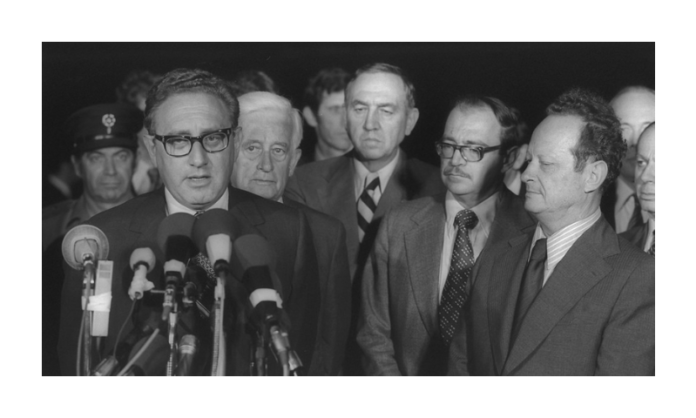“Reading Indyk’s book left me no doubt that his first aim in writing the work is the desire to change opinions, beliefs, and impressions that have emerged regarding the book’s subject matter due to his own experience in Israel during the Yom Kippur War in 1973.”
Indyk, Martin. Master of the Game: Henry Kissinger and the Art of Middle East Diplomacy, Knopf, 2021, pp: 672
Even 50 years later, the discourse about the Yom Kippur War in October 1973 continues to be bitter and incisive, replete with accusations and counteraccusations about Israel’s losing its way, debacles, treachery, hubris, lies, and more. Those studying the war and its military, political, and personal aspects have not stopped writing, and it is seemingly difficult to add anything new to the debate. Yet here we have the publication of Martin Indyk’s book on Henry Kissinger, whom he calls “master of the game” and who was one of the central figures in the international arena in diplomatic activity and thought. The book discusses at length Kissinger’s role in the period preceding the war, during the fighting, and the two-year period following the war, and the immense effort he invested in the disengagement agreements between Israel and Syria and between Israel and Egypt. The book offers new insights and is fascinating and thought-provoking, in part because Indyk adopts an original approach to the topic.
Indyk built his book on three central pillars. The first is a chronological description of Kissinger’s activity during the three periods of the military and political campaign that saw his involvement (in the fourth period—the 1977-1979 negotiations over the peace agreement during the Carter [i.e., Democratic] presidency, Kissinger, who had served as secretary of state under Republican presidents Nixon and Ford, was no longer involved). The second pillar is the “leap to the future”—the connection and the comparison the author makes between Kissinger’s activity during the years 1971-1976 and the United States’ political efforts to achieve agreements between Israel and its neighbors two decades later and beyond. The singularity of this section is Indyk’s personal perspective, as one who was involved in the majority of these efforts by virtue of his positions in the White House and the State Department. The third pillar is the “judgment of history,” in which Indyk campaigns for the positive presentation of elements of Kissinger’s narrative in the real time of the events. Equally important is the positive perspective regarding the impact of the agreements, which were the product of Kissinger’s strategic thinking and his determination to work for their achievement.
… [To read the full article, click here]






